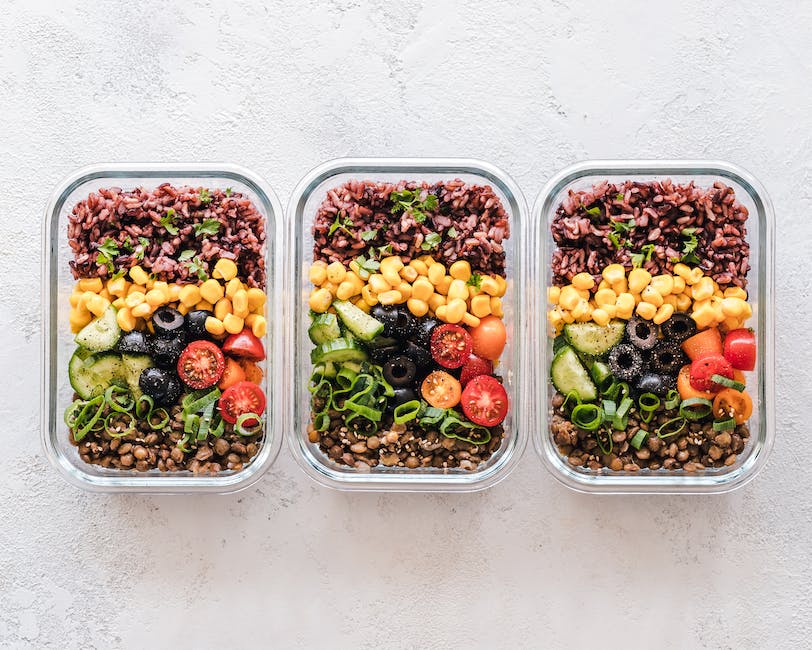Grocery shopping can be an expensive task, but thankfully, there are many ways to save money on groceries and meal planning without sacrificing the quality of the food you buy. With a bit of planning and effort, it’s possible to significantly reduce your grocery bill. Here are ten tips to help you save money on your grocery bill.
Make a Meal Plan and Stick to It

Having a meal plan for the week can help prevent you from buying unnecessary items and overspending on groceries. When you make a meal plan, you can also take advantage of sales at the store and plan your meals around available discounts. A meal plan can also help you to avoid resorting to takeout when you don’t know what to cook, saving you even more money.
When creating your meal plan, think about meal variety and ways to use ingredients in multiple meals throughout the week. Consider cooking in bulk, so you can use any leftovers for future meals. If you’re short on time, look for recipes that require minimal prep and cooking time, so you don’t have to spend too much time in the kitchen.
Shop for Sales and Coupons

Shopping for discounts, sales, and coupons can save you a lot of money on your grocery bill. Sign up for your local grocery store’s mailing list to get their weekly flyers and deal notifications directly in your inbox. You can also use coupon apps like Ibotta, Checkout 51, and Honey to find more savings on grocery items.
When taking advantage of sale prices, make sure you stick to your meal plan and buy only the items you need. Even if an item is on sale, it may not be worth purchasing if it doesn’t fit into your meal planning or if it’s something you won’t use regularly.
Buy Generic Brands

Many generic brands offer the same quality as their branded counterparts, but at a lower price point. It may take some experimenting to find which generic brand versions of your favorite foods you like best, but it’s worth the effort to save money in the long run. When trying generic brands, start with pantry staples, such as pasta, canned goods, and cereals, which can cost significantly less than the branded versions.
When purchasing items with the intention of buying generic, make sure to check the label to ensure that you are purchasing the correct item. Sometimes generic products can look similar to the branded products, but may have different ingredients or nutrition values.
Buy in Bulk

If you have enough storage space, buying in bulk can save you money on groceries in the long run. Larger packages often have a lower cost per unit, meaning you save money in the long run. Look for items, such as rice, pasta, canned goods, and frozen fruit and vegetables, which have a long shelf life and can be used in many different dishes.
When buying in bulk, make sure to check the unit price of each item to ensure that you are getting the best deal. Don’t be swayed by the bulk item’s overall price tag, as sometimes smaller package sizes can have a lower cost per unit.
Avoid Pre-Packaged Foods

Pre-packaged foods often come with a higher price tag than their homemade counterparts, and they can also be less healthy. These foods may contain higher levels of added sugar, salt, or preservatives than freshly made food, which can have an impact on your health and waistline.
Instead of relying on pre-packaged items, consider cooking your meals from scratch. If you don’t have much time to prep meals during the week, try doing meal prep on the weekends or find recipes with simple ingredients and minimal steps. You can also use frozen fruits and vegetables, which are often just as nutritious as fresh and have a longer shelf life.
Don’t Shop While Hungry

Shopping while hungry can lead to impulse buys and overspending on groceries, as hunger can make it difficult to stick to your list and meal plan. Before heading to the grocery store, make sure you eat a full meal or at least have a snack.
If you’re in a hurry or on the go, consider bringing a small snack with you to the store, such as a piece of fruit or a protein bar, to help keep your hunger in check.
Shop Seasonally
Seasonal produce is often less expensive and more fresh than out-of-season produce, as it doesn’t have to be shipped far distances to get to your grocery store. Seasonal produce is also often more flavorful, as it’s picked at the peak of its ripeness.
When planning your meals, try to work with seasonal fruits and vegetables. They can add variety to your meals, and you can experiment with new recipes that highlight the flavors of each season. If you find seasonal produce that you like, consider buying in bulk and freezing them for future use.
Avoid Waste
Reducing waste can help you save money on groceries, as food waste is essentially throwing money away. When shopping, make sure to check your pantry and refrigerator before heading to the grocery store, so you know what items you already have on hand and what needs to be restocked.
When meal planning, think about ways to use ingredients in multiple meals throughout the week to avoid having to purchase ingredients that don’t get used. You can also freeze any leftover ingredients, such as herbs or vegetables, for later use in other dishes. When cooking, make sure to properly store any leftovers in airtight containers to avoid spoilage.
Cook in Bulk
Cooking meals in bulk can help you save time and money during the week. You can cook one meal and have it for multiple days, which eliminates the need to cook every night. Cooking in bulk can also help avoid wasting leftover ingredients, as you can use them to create new meals throughout the week.
When cooking in bulk, make sure to have the proper storage containers on hand. You can also use freezer bags to store portions of food for later use. Label each container or bag with the meal name, date, and portion size to avoid confusion and make defrosting more manageable.
Grow Your Own Produce
If you have the space and time, consider growing your own fruits and vegetables. You don’t need a massive garden to grow your own produce, as items like herbs, tomatoes, and cucumbers can easily be grown on a balcony, in a pot on a windowsill, or in a small garden bed.
Growing your own produce can be a fun and rewarding experience, and it can save you a significant amount of money on your grocery bill. Produce grown at home is often fresher than store-bought produce, meaning it will last longer in your kitchen. You’ll also gain a greater understanding of what goes into growing fruits and vegetables, which can help you appreciate them more.







